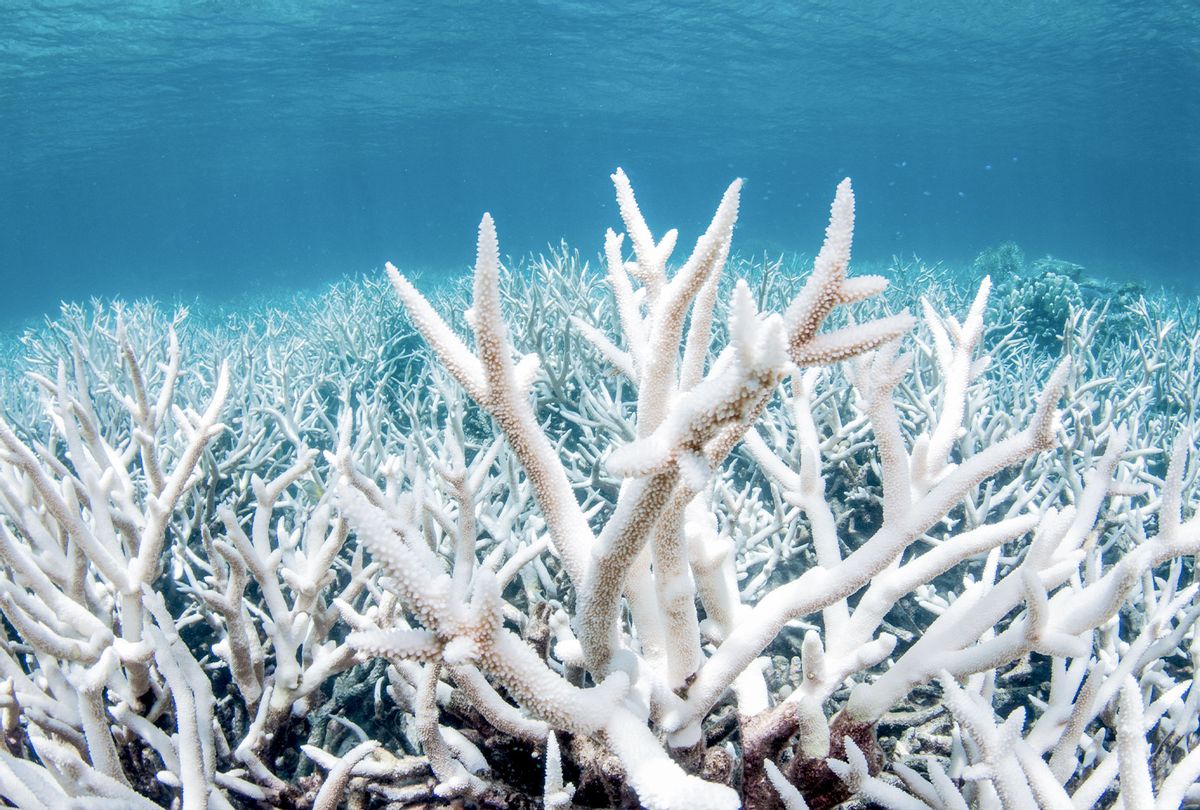Roughly 66 million years ago, an asteroid or comet struck the planet and wiped out three-quarters of every animal and plant species alive. Known as the Cretaceous–Paleogene extinction event (K–Pg), it has been immortalized in popular culture because of its association with the end of the dinosaurs' reign on Earth.
That is why scientists are hopeful that a new study regarding the rate of extinction nowadays may hammer home the urgency of our pollution problems. In an international study led by the Justus Liebig University Giessen that included geologists, paleontologists, evolutionary biologists and many others, researchers found that in some cases, man-made factors are causing an extinction rate that surpasses that of the Cretaceous–Paleogene extinction event.
The study, which was published last month in the journal Communications Earth & Environment, closely analyzed past extinction rates for freshwater animals and plants, then used that information to extrapolate likely future extinction rates. They discovered that the average predicated rate for freshwater animals and plants today is three orders of magnitude higher than it was during the Cretaceous–Paleogene extinction event. If current trends continue unabated, one-third of all freshwater species alive today may be forever gone by 2120.
If that happens, we can expect that the damage to our freshwater ecosystem — which, inevitably, has an impact on ecosystems everywhere else on the planet — will be effectively permanent.
"Our results indicate that, unless substantial conservation effort is directed to freshwater ecosystems, the present extinction crisis will have a severe impact to freshwater biota for millions of years to come," the authors write.
Even after the extinction event itself abated, the extinction rate remained high for 5.4 million years; the ecological recovery period required another 6.9 million years. Hence, the authors believe that our current situation might be comparable. Even if the man-made impact on life on Earth "ceases immediately, the already triggered phase of extinction might still involve several million years," they write.
Speaking to the Naturalis Biodiversity Center, the study's lead author Dr. Thomas A. Neubauer explained that "losing species entails changes in species communities and, in the long run, this affects entire ecosystems. We rely on functioning freshwater environments to sustain human health, nutrition and fresh water supply." He added that "despite our short existence on Earth, we have assured that the effects of our actions will outlast us by millions of years."
In the study itself, the authors explained that the extinction crisis "has consequences on many levels," noting that smaller changes compound into larger ones that eventually have devastating consequences.
"Radical changes in ecosystem functioning, in turn, may have severe implications on ecosystem services for humanity, such as food provision, disease resistance or economic benefits," the authors write. "Thus, if we continue to lose species at the fast pace our analysis suggests, we will continue to impair ecosystem services to our own disadvantage."
The new study is one of many red flags being thrown up by the planet about a number of pollution issues that threaten our survival. A February report by the World Wide Fund for Nature (WWF) and Global Wildlife Conservation revealed that roughly one-third of the world's 18,075 freshwater fish species face possible extinction. The reasons for this include climate change, the introduction of invasive species, habitat destructions, pollution, and overly aggressive draining and damming.
In September a report by the World Wildlife Fund (WWF) found that overall population sizes of "mammals, birds, amphibians, reptiles and fish" have dropped by 68 percent since 1970, indicating that the planet "is being destroyed by us at a rate unprecedented in history." Some scholars have already coined a term, Anthropocene, to describe the geological epoch brought about by climate change and marked by the proliferation of mass extinctions. We are already in the midst of what scientists refer to as the Holocene extinction, or the sixth known mass extinction event in the Earth's history, this one due to human activity.
Want more health and science stories in your inbox? Subscribe to Salon's weekly newsletter The Vulgar Scientist.



Shares